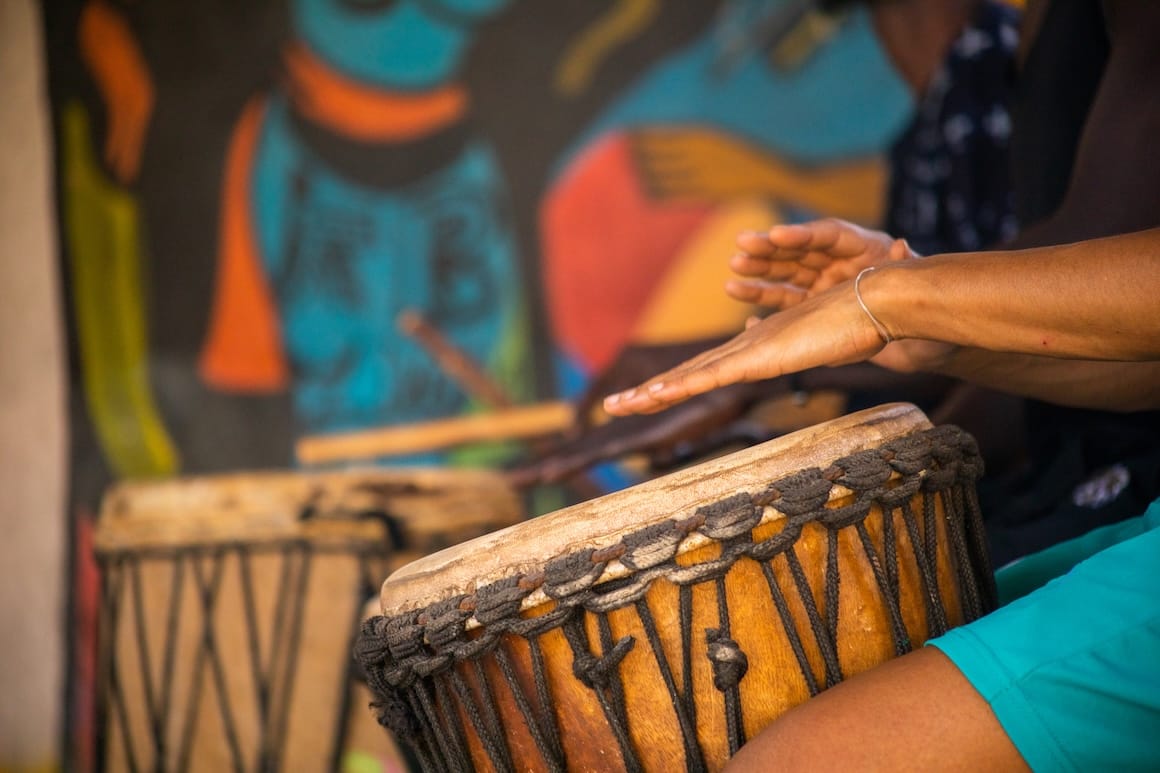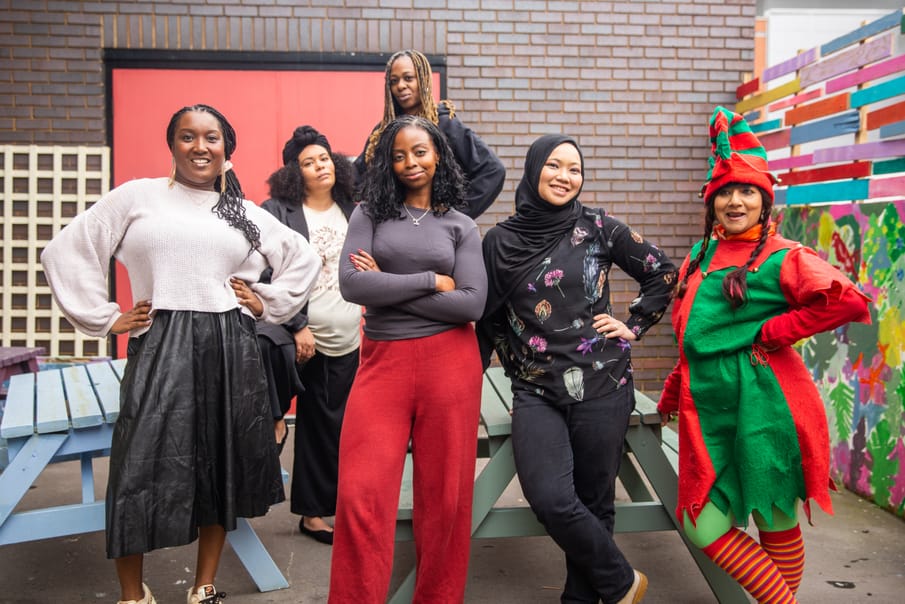We’re putting community initiatives in the spotlight, and today, the Anansi Theatre Company is centre stage…
A belief in the power of art, and frustration at the lack of spaces where women of colour can express themselves, inspired actress, poet, physical theatre performer, and lecturer Lauren Nicole Whitter to set up Anansi Theatre Company. Based in Derby, it is unapologetically run ‘by and for’ women of colour, offering a range of community theatre opportunities.
“We set it up in 2021, when a lot of Black and brown communities felt alienated and unheard,” says Lauren. “Black Lives Matter blew up, and more organisations talked about how they’re going to do better, and involve people of colour in decision-making and creative spaces. Since then, it’s just fizzled away. A group of us came together and realised, where are the creative spaces for women of colour?
“We decided, and I decided due to my own mental health journey, that it was important to incorporate the effects of racism and discrimination on mental health in our work.”
Research shows that 90% of people working across arts, culture and heritage are white – higher than the general workforce figure (85%). And it’s not just the creative workforce that lacks diversity – most recent data from Arts Council England shows that in the audiences who participated in their funded projects (which include theatre, dance, music, and literature), only 2% were Black or Black British.
But Anansi Theatre Company aims to improve those numbers, and create real change in its community by using the universal language of art to touch artists and audience members alike. “I love the idea of the audience being in a room together, and we’re watching the same thing, but everybody has a different relatability with what they see on stage, a different connection, and then the conversations you have after seeing a show – it’s just amazing,” Lauren says.
It’s not easy of course, but Lauren notes that the sense of fulfillment that comes from working on a performance together is part of why the process is so powerful. “When you’re making a show, it’s hard work, but you’re all coming together, all creative, from different backgrounds, to make this one product is really, really special.”
In its community theatre workshops, which include sessions for children and adults, the company often draws on the idea of African storytelling as a way to reclaim voices and pass on stories – something that marginalised communities have done for hundreds of years in the face of cultural oppression. In a world where Black voices have historically been excluded from mainstream books and media, the workshops often use the Anansi Spider Stories from West African folklore as inspiration. “We wanted to emphasise that connection of the heritage, and the connection of the storytelling,” says Lauren. “So when we do a workshop, we often use music, we use sound, we use African drumming.”

Each session allows people to express themselves in ways that make sense to them, creating a therapeutic outlet for emotions that may otherwise have stayed bottled up. “You can dance it out,” says Lauren, “you can write a poem, or make music about how you feel. Some people don’t have the vocabulary to say how they feel, or are scared of what might happen if they do.” With facilitators leading the sessions, participants have time and space to create in their own unique way.
Individual and group check-ins are built into the sessions, in order to allow participants to connect with their emotions. “I’m a physical theatre artist, so we might look at where our energy is today, or ask people to express themselves with a facial expression or a word, or movement,” says Lauren. “It’s about finding different ways for the individual and how they want to express themselves.”
As well as adults, Anansi also runs a drama club for girls and young women of colour ranging from six to 14 years old. Terms last around 10 weeks, and focus on skills-based classes, such as creative writing and dance, leading to a piece of work created together – which in the past has included a play and individual monologues. Groups are separated by age, but share a meal together, creating a sense of connection as they enjoy food and conversation in the large hall above Normanton Library.
“They learn a new skill and make friends,” says Lauren. “One girl we worked with said that she auditioned for a show at school afterwards, which is amazing. She went on to do drama at GCSE.”
Whether those involved go on to pursue performance isn’t what matters most. With global majority groups in the UK more likely to be diagnosed with a psychotic disorder, experience a poor outcome from treatment, and disengage from mainstream mental health services, the group can serve as a powerful wellbeing tool.
“I came to the music and art group at Anansi because I was feeling very isolated,” says one of the young participants. “It turned out to be the best thing that has happened to me in a very long time. I am so glad that I made myself go, because I have made friends and feel like I have found my little family.” The mental health impact of coming together and creating work is important. “For women of colour, we don’t feel like we’re heard, or that we have the power to change our situations. We’re using the arts as a vehicle to empower, to inspire,” says Lauren.
The theatre company makes sure sessions are welcoming and inclusive. This includes ensuring members of the team have mental health first aid training, and a mental health champion. “We want to make sure the girls and women we work with understand that they are heard and taken seriously.” To make their work possible, Anansi Theatre Company receives funding from a range of sources, including Children in Need, the National Lottery, and Derby City Council.
For those wanting to do something similar, Lauren says: “Go for it. Start with your idea, and find people who feel the same. Find that community, find that need. Be patient with yourself and trust yourself – you know you’ve got this.”


Comments